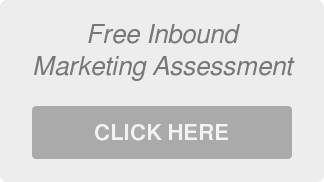 Every business knows that lead generation is the lifeblood of growth. Yet, as customer attitudes shift and technology evolves, the strategies that worked yesterday may not work tomorrow. It’s important to stay ahead of the curve. That’s why we’re digging into the top lead generation trends set to dominate in 2025.
Every business knows that lead generation is the lifeblood of growth. Yet, as customer attitudes shift and technology evolves, the strategies that worked yesterday may not work tomorrow. It’s important to stay ahead of the curve. That’s why we’re digging into the top lead generation trends set to dominate in 2025.
1. Hyper-Personalization Is King
Gone are the days of generic marketing messages blasted to the masses. Consumers in 2025 demand relevance. Hyper-personalization, fueled by AI and enriched data, is transforming how businesses connect with prospects. Rather than sending a general email to your entire list, imagine delivering an offer tailored not just to a recipient’s industry, but their specific needs or pain points. Invest in customer data platforms (CDPs) to unify your customer insights across all channels. Relevant customers are more likely to trust your brand—and convert.
2. AI-Driven Chatbots And Conversations
AI-driven chatbots are no longer just a nice-to-have—they’re an essential tool for capturing leads. Today’s chatbots don’t just answer FAQs; they simulate human-centered conversations, enabling businesses to engage with potential customers 24/7. Modern bots can guide your audience through the buyer’s funnel—from initial inquiries to product recommendations. They go from being reactive (answering queries) to proactive (identifying high-potential buyers). Keep these tools sharp by regularly iterating on FAQs and monitoring their performance to continuously improve the experience.
3. Video Content Moves To The Forefront
Platforms like YouTube, TikTok, and even LinkedIn are becoming core lead-gen tools. Short demo videos, live Q&A sessions, or professionally crafted testimonials can hook potential customers in seconds. Expect interactive videos—where users click and explore—to further bridge the gap between interest and conversion. Create a mix of high-value evergreen content—like product demos and webinars—and timely pieces, such as responses to current industry trends. Besides increasing traffic, these visual tools speed up the decision-making process for your viewers.
4. Privacy-Centric Marketing Fuels Trust
With regulations like GDPR and CCPA shaping how data is collected, transparency in lead-generation practices will take center stage. Customers expect companies to care about their privacy. Permission marketing—earning trust before asking for data—is essential. Techniques such as zero-party data (where users willingly provide their information) outperform the outdated methods of intrusive popups or third-party tracking. Additionally, clearly outline how customer information will be used. Trust fosters loyalty, and loyal customers are the best leads.
5. Account-Based Marketing Takes Center Stage
Account-Based Marketing (ABM) isn’t new, but by 2025, it’s evolving into a high-precision lead-generation tactic. Focused on targeting specific, high-value accounts, ABM flips traditional models by prioritizing quality over quantity. ABM involves tailor-made strategies for specific organizations with high ROI potential. These accounts receive personalized campaigns addressing their unique challenges. Work closely with sales to identify ideal companies, then develop customized pitches or offers. While resource-intensive, ABM often achieves higher conversion rates compared to general outreach.
6. Voice Search Optimization
Voice search is on the rise, and smart speakers like Alexa or Google Home are shaping how people interact with brands and services. In 2025, predictions indicate 50% of searches will be voice-driven. Keywords such as "near me" or more conversational phrases dominate voice searches. For lead gen, this means catering your SEO approach to voice-based formats. Fine-tune your website content for natural, question-based keywords, ensuring that responses are concise and helpful.
7. First-Party Data Is The New Currency
With the death of third-party cookies looming, first-party data will reign supreme in 2025. Everything from website interactions to customer behavior data is now a source of insight businesses can no longer ignore. Whether through email lists, survey responses, or social engagement, building your own data wealth ensures you remain largely unaffected by privacy changes. By prioritizing first-party strategies, you guarantee better accuracy and compliance in your lead generation process.





